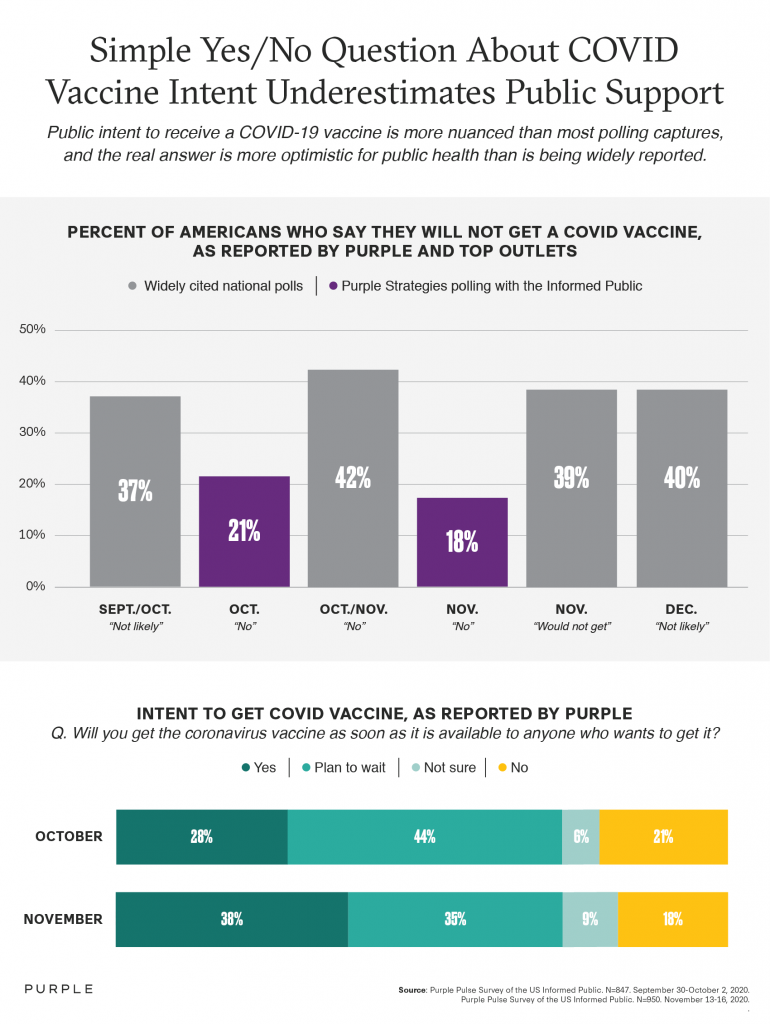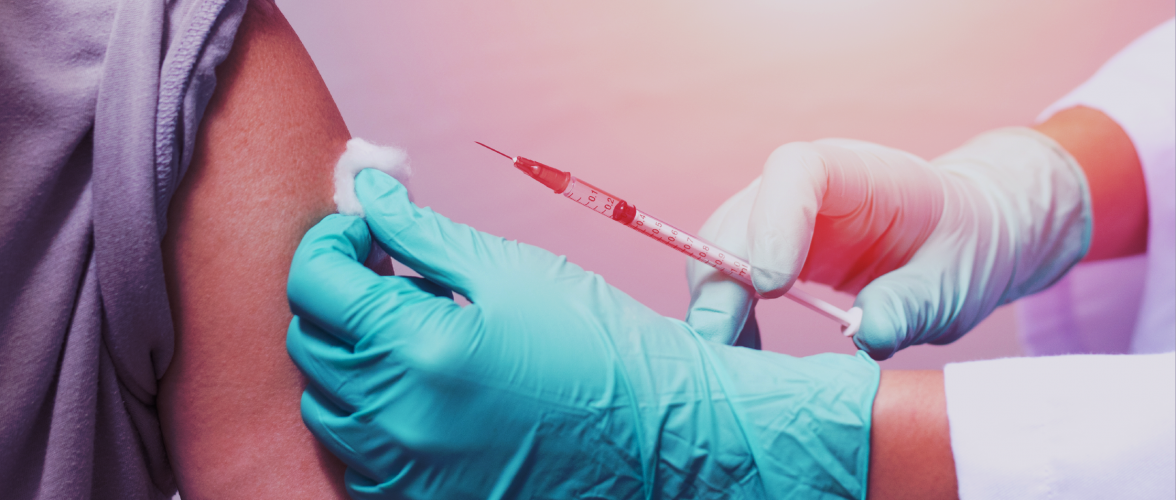Public intent to receive a COVID-19 vaccine is more nuanced than most polling captures, and the real answer is more optimistic for public health than is being widely reported.
Horserace political news coverage has always driven a large audience for media companies. So it’s no surprise that news organizations have keyed in on the next critical binary choice Americans face: Will people get the COVID vaccine?
The headlines and the polling on this question, however, can tell an incomplete and frequently misleading story about COVID vaccine hesitancy – inadvertently inflating the number of Americans who are not planning to get the vaccine.
According to most recent polls that are being widely reported in the media, roughly 4 in 10 Americans have indicated that they are not likely or not planning to get the vaccine when it is available. For example, here are recent poll numbers from four different national polls recently cited in the media:
- December poll: 40% not likely
- November poll: 39% would not get (probably + definitely)
- October/November poll: 42% no
- September/October poll: 37% not likely
If 40% are refusing to get vaccinated, there is certainly reason for concern. While not naming an exact figure, public health officials have indicated that “the vast majority” of us need to be vaccinated to get to herd immunity. So clearly, a lot is riding on increasing our collective level of coronavirus vaccine confidence and trying to persuade that still-too-large number who say “no” to the vaccine to join the “yes” camp.
Understanding public opinion requires asking the right questions.
Asking people how likely they are to get the vaccine, or asking them a simple binary yes or no question, over-simplifies what for many people is a much more nuanced decision – one that for many must account not just for whether, but also when to get the COVID vaccine. For this reason, we have been asking this question differently in our own public opinion polling. In our most recent poll, we find that some people plan to get the coronavirus vaccine immediately, as soon as it is available (38%); some people are more comfortable waiting a period of time before getting a vaccine (35% in our most recent poll, and of those, half say they just want to wait for others to get the vaccine first to ensure that there are no side effects and that it is as safe and effective as promised); and 9% say they are undecided or not sure. That leaves only 18% in the “no” camp, which incidentally, has moved relatively little since our initial poll.
Bottom line: Whether you are tracking public opinion about a public health challenge or about the reputation of a Fortune 100, the questions you ask and the way you ask them can drive vastly different results.

Purple is actively partnering with companies and industries to navigate the ever-changing COVID-19 pandemic and prepare for the future that will come after, bringing deep experience helping the world’s best-known companies navigate the world’s toughest challenges. Please reach out to author Denise Brien or any member of our Purple team to let us know how we can support you.
By Denise Brien | Managing Director | denise.brien@purplestrategies.com

 What does corporate leadership look like in a divided nation?
What does corporate leadership look like in a divided nation?  Waiting to Engage in D.C. Is the Most Expensive Mistake You’...
Waiting to Engage in D.C. Is the Most Expensive Mistake You’...  The Era of High-Stakes Uncertainty
The Era of High-Stakes Uncertainty  What Forces are Shaping the Future for CMOs?
What Forces are Shaping the Future for CMOs?